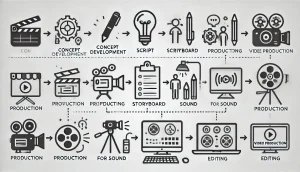Things You Aren’t Told When Transitioning From Employment to Business
Starting a business is one of the most rewarding and challenging decisions an individual can make. Transitioning from employment to business ownership requires much planning and preparation, enough resources, and a clear understanding of the risks involved. The move may make even the most experienced entrepreneur a little intimidated. Here are a few truths no one tells you about transitioning from employment to business:
Nothing Ever Runs Smoothly
Nothing ever runs smoothly in business, especially when you are just starting. You will face unexpected roadblocks or obstacles that’ll throw you off course. Focus on your long-term goals and objectives so these minor setbacks don’t derail your progress.
Think of what to do when things don’t go as planned. For instance, what do you do if you land a massive order over the weekend but need more stock or cash to fulfill it? Weekend payday loans are an ideal option. Work with reliable providers available at any time of the day or night. Online lenders are better because they offer fast and easy access to short-term credit when needed.
The Why Is More Important Than the How
The ‘how’ of starting and running a business is vital, but understanding why you are doing it is even more critical. It gives you the drive or motivation when the going gets tough. Maybe you want to become an entrepreneur because it’s what you love or are passionate about. Sometimes the need for a better work-life balance is the primary motivation. Also, it’s an excellent way to generate additional income or become financially independent. Whichever the case, understanding your ‘why’ is vital.
Integrate Systems and Processes
Set up systems and processes that save time, reduce stress, and make it easy to manage your business. Use appropriate tools to connect different software applications that would otherwise require manual inputs and tracking. Automate processes like invoicing, reminder emails, and appointment scheduling.
Systems also let you manage the business from anywhere. Use software to track your income, manage customer relations, and schedule tasks. Additionally, find ways to work smarter, not harder. Leverage existing tools or services like virtual assistants and freelancers to do the heavy lifting.
You’re Not the Boss
You’re the one who came up with the strategy and spent sleepless nights figuring out how to make it work. You’re also the one with the vision. However, your customers and your team are the ones who shape the culture and direction of your enterprise. Listen to their feedback, understand their needs and desires, and give them what they need to grow together.
Let your employees be part of the decision-making process, allow them to take the initiative, and give them ownership of their work. Create an environment that promotes collaboration and learning for everyone to feel they have a stake in the business. This will create a loyal customer base and employees who feel respected and valued.
Regularly revisit your mission, objectives, and goals to see if they align with what you want for your business. Re-evaluate your daily routine and look for ways to streamline tasks to have more time for what matters. When done right, you’ll have the energy and focus needed to make the business thrive and the transition smooth.








